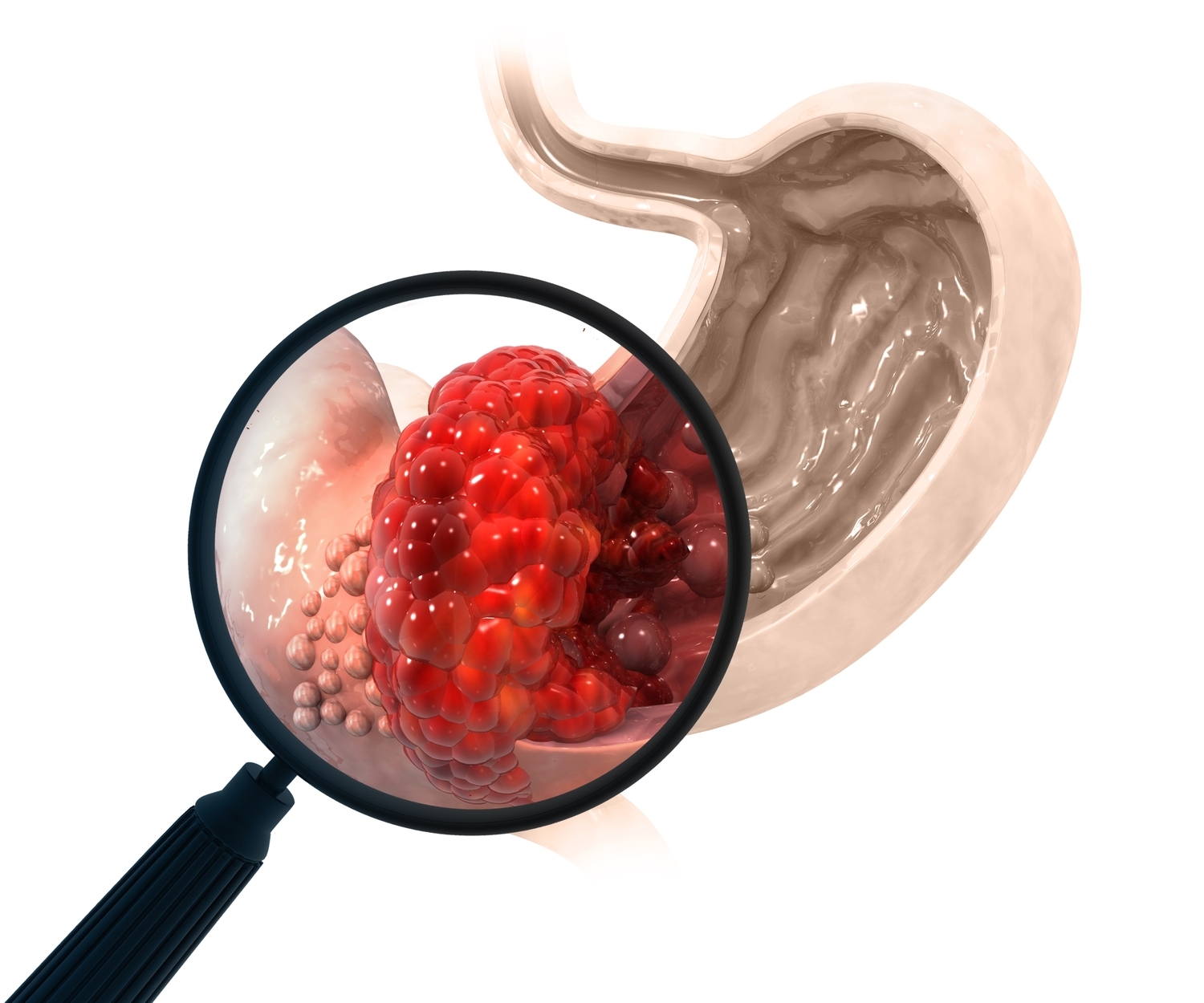Breakthrough Treatments Ripretinib and Ayvakit Revolutionize GIST Management
Innovative therapies like Ripretinib and Ayvakit are transforming gastrointestinal stromal tumor (GIST) management. These targeted drugs address genetic mutations resistant to traditional treatments, offering hope for improved survival. Ripretinib broadens the scope against multiple mutations, while Ayvakit focuses on specific PDGFRA mutations such as D842V. Their approval represents remarkable progress in personalized cancer therapy, especially for resistant GIST cases. This article comprehensively discusses mechanisms, effectiveness, side effects, and the future potential of these groundbreaking treatments, marking a new era in targeted oncology medicine.

Revolutionary Advances in GIST Treatment with Ripretinib and Ayvakit
Gastrointestinal stromal tumors (GIST) are uncommon yet significant forms of cancer that develop within the digestive tract, predominantly affecting the stomach and small intestine. These tumors originate from interstitial cells of Cajal—specialized cells responsible for coordinating gut muscle activity. The growth of GISTs is primarily driven by mutations in specific genes such as KIT and PDGFRA, which activate pathways that lead to abnormal cell proliferation. Recent innovations in targeted therapies, particularly Ripretinib and Ayvakit (avapritinib), have transformed the landscape of GIST treatment. These therapies are designed to precisely target the genetic mutations fueling tumor growth, leading to improved patient outcomes and offering new hope for those who face resistance to traditional treatments.
Traditional treatments like imatinib, a well-established first-line drug, often become ineffective over time due to the development of resistance. This gap has spurred the development of novel therapies such as Ripretinib and Ayvakit, which offer targeted mechanisms designed to overcome resistance and manage advanced cases more effectively. This comprehensive article explores how these breakthrough drugs differ in their efficacy, safety profiles, and mechanisms of action, illustrating their roles in the evolving field of GIST management.
Understanding GIST and the Challenges in Treatment
GISTs are primarily driven by mutations in the KIT and PDGFRA genes. These genetic alterations lead to chaotic cell signaling, promoting continuous tumor growth and survival. Historically, tyrosine kinase inhibitors (TKIs) like imatinib have been the cornerstone of GIST treatment, functioning by blocking abnormal enzyme activity resulting from these mutations. However, a significant challenge arises when tumors develop secondary mutations that confer resistance, rendering these drugs less effective or entirely ineffective. Such resistance indicates the urgent need for alternative therapeutic options that can target the evolving genetic landscape of GISTs.
Patients with tumors resistant to traditional TKIs or harboring specific mutations have limited options, often facing a grim prognosis. Recognizing this, pharmaceutical research has focused on creating drugs that target secondary mutations and specific genetic profiles, leading to the development of Ripretinib and Ayvakit. These therapies serve as vital second- and third-line treatments, providing renewed hope and expanding options for patients with difficult-to-treat GISTs.
Ripretinib: Advancing the Fight Against Resistant GIST
Ripretinib, marketed as Qinlock by Deciphera Pharmaceuticals, represents a new class of next-generation tyrosine kinase inhibitors (TKIs). It has been specifically engineered to inhibit a broad spectrum of mutations in KIT and PDGFRA, the primary drivers in GIST pathology. Approved by the U.S. Food and Drug Administration (FDA) in May 2020, Ripretinib is indicated for adult patients with advanced GIST who have previously undergone treatment with at least three different kinase inhibitors. It is regarded as a fourth-line treatment option, especially valuable when tumors show resistance to earlier therapies.
Mechanisms of Action
Ripretinib functions by stabilizing the inactive form of the KIT enzyme, effectively preventing the activation of pathways that stimulate tumor proliferation. It is capable of inhibiting both primary mutations (initial genetic alterations) and secondary mutations (those that develop after initial treatments). This broad activity makes it especially effective in resistant GIST cases, where other TKIs fail due to mutation-specific resistance.
Clinical Trial Evidence and Effectiveness
Clinical studies such as the INVICTUS trial have demonstrated Ripretinib’s efficacy in prolonging progression-free survival (PFS). Patients treated with Ripretinib experienced a median PFS of approximately 6.3 months compared to just one month in placebo groups. Moreover, the overall survival (OS) median reached 15.1 months, a significant improvement for heavily pre-treated patients. These results have established Ripretinib as a valuable therapy for advanced resistant GIST.
Potential Side Effects and Safety Profile
As with many targeted therapies, Ripretinib’s side effects are generally manageable. Common adverse reactions include hair loss, fatigue, nausea, and muscle discomfort. More serious but less frequent side effects can include skin reactions and elevated blood pressure, which require careful monitoring and management during therapy. Overall, the benefits of this drug in controlling resistant GIST often outweigh the manageable risks.
Ayvakit: Precision Medicine for Specific GIST Mutations
Ayvakit, known generically as avapritinib, is a highly selective inhibitor developed by Blueprint Medicines. It received FDA approval in January 2020 specifically for adult patients with GIST harboring PDGFRA exon 18 mutations, with particular emphasis on the D842V mutation—one of the most challenging mutations that confer resistance to standard TKIs. This drug exemplifies precision medicine, offering a tailored approach based on the tumor’s genetic profile.
How It Works
Ayvakit targets mutated PDGFRA and KIT proteins by selectively inhibiting their activity. Its design allows it to effectively block abnormal signaling pathways that sustain tumor growth in D842V-mutant GISTs. Because of its specificity, Ayvakit demonstrates high response rates in this subgroup where traditional therapies often fail.
Clinical Efficacy Data
Results from trials such as NAVIGATOR show that Ayvakit can achieve an impressive response rate of roughly 84% in patients with the D842V mutation. Many patients experienced complete tumor reduction, highlighting its potency. While long-term survival data are still being accrued, early results indicate substantial clinical benefit, making it a game-changer for this subset of GIST patients.
Side Effects and Risks
Patients on Ayvakit commonly report side effects including swelling, fatigue, nausea, and some cognitive issues like memory difficulty. Rare but severe adverse events, such as bleeding and cardiac problems, have been documented, underscoring the importance of close monitoring during treatment. Despite these risks, Ayvakit’s targeted mechanism makes it an essential tool for managing mutation-specific GISTs.
Comparing Ripretinib and Ayvakit: Tailoring Treatment to Mutational Profiles
Both Ripretinib and Ayvakit are pivotal in the treatment paradigm of GISTs, especially after resistance develops to initial therapies. Their selection depends on the tumor’s genetic makeup and previous treatments. Here’s a detailed comparison:
Regulatory Status
Ripretinib: FDA-approved as a fourth-line treatment for resistant GISTs
Ayvakit: FDA-approved as a first-line therapy for GIST with PDGFRA exon 18 mutations, particularly D842V
Mechanism of Action
Ripretinib inhibits multiple mutations broadly by stabilizing inactive KIT
Ayvakit selectively inhibits mutant PDGFRA and KIT proteins, focusing on specific mutations
Patient Selection
Ripretinib is suitable for patients with tumors resistant to multiple prior TKIs
Ayvakit benefits patients with D842V mutations who lack effective treatment options
Clinical Outcomes
Progression-Free Survival (PFS): approximately 6.3 months; Overall Survival (OS): around 15.1 months (Ripretinib)
Objective Response Rate (ORR): up to 84% in D842V mutation cases (Ayvakit)
These therapies exemplify the trend toward personalized medicine, ensuring that treatment is aligned with the tumor’s genetic profile. They represent a significant advancement in the fight against resistant GISTs and demonstrate the ongoing evolution of targeted cancer therapies.Future Perspectives and Ongoing Research
The development of Ripretinib and Ayvakit marks a milestone in GIST management, but ongoing research continues to push boundaries. Future studies aim to evaluate their long-term efficacy, potential combination strategies, and applications for other mutations. The goal is to further refine personalized treatment approaches, improve survival rates, and minimize adverse effects. As our understanding of tumor genetics deepens, new targeted therapies are likely to emerge, offering even more effective options for patients with this challenging disease.
References
Deciphera Pharmaceuticals. (2020). "Ripretinib (Qinlock) for GIST." https://www.deciphera.com
Blueprint Medicines. (2020). "Ayvakit (Avapritinib) for GIST." https://www.blueprintmedicines.com
ClinicalTrials.gov. "INVICTUS Study for Ripretinib in GIST." https://clinicaltrials.gov
U.S. Food and Drug Administration. "FDA Approves Ripretinib for Advanced GIST." https://www.fda.gov





